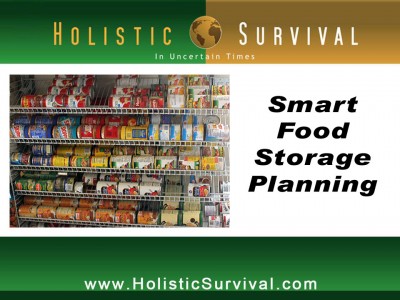 Earning passive income through investment properties is only one smart way to prepare for emergency situations. Stocking up on food items is another way, but it only works if you know the rules of food storage and put them to use.
Earning passive income through investment properties is only one smart way to prepare for emergency situations. Stocking up on food items is another way, but it only works if you know the rules of food storage and put them to use.
Check the “use by” date and know when your food will spoil. Have a rotation system in effect and mark expiration dates on the calendar, so you aren’t wasting money by letting food pass its “use by” date and chance spoiling. The easiest way to do this is separating stored food by the month that it will expire and rotate it into your meal planning at least one month prior to expiring. When you purchase additional items to replace those coming out of your emergency stash, be sure that they are put in the back of the rotation.
This is also true for jump bags and even water, which can take on the flavor of nearby items (even paint or gasoline, if kept in the garage), so be sure to rotate them regularly.
Canned goods: Marked with a “use by” date, which can be several years. Discard if bulging. Keep cans out of heat. Highly acidic foods will spoil quicker than ones with low acid content.
Dried foods: If sealed in an air-tight container, dried goods such as rice or pasta can last a long time. Your main concern will be moisture or bugs, which can cause spoilage.
Baking staples: Items like flour and sugar also have long shelve lives, as long as they are stored in air-tight receptacles or bags. Some items, such as baking powder or baking soda tend to lose strength over time, so only buy what you’ll use.
Oils: Purchase several small bottles, rather than one large one, because once opened, oil can go rancid in just a few months’ time, while unopened oil can keep up to two years.
Nuts: Since nuts contain oil, they can go rancid; however, freezing them extends the shelf-life up to a year. Peanut butter has preservatives which allow it remain edible for a year without freezing.
Condiments: Opened bottles, stored in the fridge, last for six months. Unopened bottles last for over a year. Salt, as long as no moisture reaches it, lasts for decades, while pepper and other spices should be purchased in whole seeds for storage purposes.
Herbs: Dried herbs retain their flavor for up to three years. Buy whole leaves or grow and dry your own, as powdered herbs only stay potent for six months. Store away from light, heat, and moisture.
When planning for your survival in an emergency, always be smart not to waste your time or your money on bad investments. Register now for Jason Hartman’s Memphis Cash Flow Bus Tour so that you can learn about the best investment properties in the Memphis area. (Photo Flickr | Hotcouponworld.com)
The Holistic Survival Team
